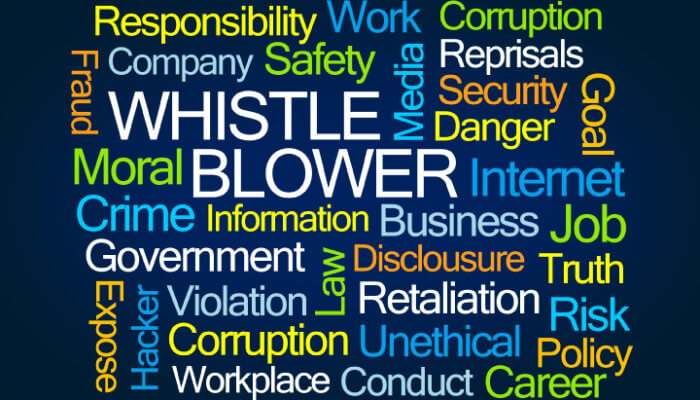Let’s start off with a quick overview of what “whistleblower” means. A whistleblower is an employee who reports wrongdoing within their company to an outside entity, usually a regulator or law enforcement agency. The report can be about anything illegal or unethical happening at work, such as fraud, embezzlement, safety violations, etc.
A California employer may not make, adopt or enforce any rule, regulation or policy preventing an employee from being a whistleblower. Also, an employer may not retaliate because an employee:
- Is a whistleblower;
- Refuses to participate in an activity that would result in a violation of a state or federal statute or a violation of or noncompliance with a state or federal rule or regulation; or
- Exercises his or her rights as a whistleblower in any former employment.
There are many laws in place at the federal and state level that protect whistleblowers from retaliation. This means that your employer cannot fire you, demote you, or otherwise punish you for coming forward with information about misconduct. These laws also typically require employers to keep your identity confidential if you request it.
California has some of the strongest whistleblower protections in the country. For example, the California Whistleblower Protection Act (CWPA) applies to all public and private employees in the state. The CWPA prohibits employers from retaliating against whistleblowers in a number of ways, including termination, demotion, suspension, harassment, and more.
There are also several other state and federal laws that protect whistleblowers in specific industries or situations. For example, the Sarbanes-Oxley Act protects employees of publicly-traded companies who report securities fraud, and the False Claims Act protects employees who report fraud against the government.
Be aware that where there is overlap between federal, state and/or local law, complying with the law that offers the greatest rights or benefits to the employee will generally apply.
If you believe you have been retaliated against for blowing the whistle, you should contact an experienced employment attorney right away. An attorney can help you understand your rights and options, and they can represent you in any legal proceedings that may arise.
